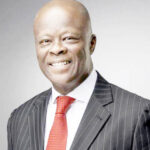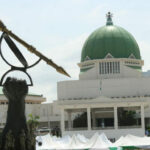If the leadership and members of the next National Assembly would work with the same zeal as they are currently expending in the scramble for juicy posts, Nigeria would surely experience a quantum leap in our economic conditions. Even the blind has seen, and deaf heard the intense lobbying, horse-trading, and permutations that went into the emergence of those who have been tipped for the key posts.
Beyond this, Nigerians want to see the lawmakers carry this zeal into the actual work for which the citizens thronged the voting centres about three months ago to elect the federal legislators.
The chase for the posts of presiding officers at both the Red and Green chambers has been so intense that nothing else would have been done between now and inauguration day if the allocation was not sorted out. The posts include the Senate President and Deputy President; the Speaker and Deputy Speaker, and of course, the other members that make up the leadership of the NASS. After this, there will also be scheming by members for the chairmanship of oversight committees. This is another juicy area at the NASS, as members fall over each other in their bid to head some choice committees.
We need laws that lift the quality of life of Nigerians. There should be conscious efforts through legislation to improve the remuneration of Nigerian workers and their conditions of service. We need legislation on incentives to spur a new economic revival marked by a booming industrial sector. We need laws for the protection and safety of our farmers, and ordinary Nigerians of all walks of life.
- Nigerian society has failed people with disabilities – Centre
- FG, UNDP, Japan to tackle piracy in Nigeria, Gulf of Guinea
As the new and returning national lawmakers engage in back-slapping in celebration of their victories at the polls, let them know the enormity of the work that lies ahead. This country is in dire need of quality legislative processes and in some ways, the citizens cannot wait to begin to reap the fruits. Going forward, the job of legislating must not be business as usual, where the Distinguished Senators and Honourable Members, who are on a full-time job, give us the impression that it is a part-time job and they can to do it anyhow.
Nigeria needs a National Assembly led by people with vast experience in economic policy formulation. The overall objective of lawmaking must be to raise the standard of living of the people, and the number one way of achieving this is to ensure that the economy performs better. Indeed, we cannot lay a sound foundation for the economy without a change in the quality of the work of the National Assembly.
Whether we are talking about an overall industrial policy framework or specific sectoral policies, lawmaking must be given the right position it deserves for the economy to work well. Let them begin to ask the underlying question in industrial policy formulation: what are the things that are needed now for this economy to perform better than it is currently doing? As they identify those policies and actions that must be taken, then they should turn the next question to themselves: what is our role in all of these?
All over the world, the legislature is regarded as the second pillar on which the economy of a nation rests, the first being the markets. The legislature must play the role of complementing the markets, which have over the years been demystified. Whereas early economists, otherwise known as the classical economists as represented by Adam Smith, saw the economy as self-regulating and the markets infallible, historical swings in the general economic performance have since convinced the economists that markets are not enough to ensure smooth performance and efficient resource allocation.
Now, while the invisible but fallible hands of the markets will be operating underneath, the visible hands of the Assembly must rise to their responsibility of acting as the counterweight to market failure. This will come by way of policies anchored on relevant laws that seek to change the business environment. By the way, a market is nothing but a system of rules that govern business transactions so lawmakers have a responsibility to strengthen our markets by way of rules and appropriate legislation. Where markets are not doing well it is their job to fix the challenges through law.
Where there are no markets, it simply means that there have been no laws creating such markets. The roles of the oversight committees come in here. For those who will be saddled with the responsibility of working with our regulatory agencies, they must ensure that those agencies rise to their duties and define the rules to drive the market that we all want to see exist in our economy.
The trappings of office attached to these national posts at the Assembly often overshadow the real purpose of the legislature in modern political economy, especially in our clime. In today’s economic configurations, there exists a connection between the economy and politics, which ensures complementary roles between them in ensuring that the welfare of the citizens is protected.
The truth is that the legislature is a powerful and effective tool for modern economic engineering. It should steer the economy in the appropriate direction for this time. The purpose must be to realign a country’s business and economic landscape for greater performance marked by improved output of goods and services. Through its legislative powers, the Assembly should direct the course and pace of the nation’s economic development.
Legislation has been used to create whole new industries through laws and demands for new ways of doing things. It has also been used to restructure old and dying industries back to life through the realignment of incentives, laws on investments, and exit and entrance rules that make conditions conducive for operators.
In a globalised world in which all nations now compete, capital and labour roam the planet in search of where to pitch their tents to operate. But before they set their feet on any particular soil, they want to see how the local environment aligns with their expectations. The quality of laws that legislators make and ensure their enforcement will make a difference between choice investment destinations and others that wait in vain for foreign capital.
If members of the next NASS are wondering what their contract with the electorate is or will be, then let this point be clear to them, even as they jostle for the perks of office. Foreign investors are waiting at the borders. And Nigerians too are waiting at home.

 Join Daily Trust WhatsApp Community For Quick Access To News and Happenings Around You.
Join Daily Trust WhatsApp Community For Quick Access To News and Happenings Around You.


